Archive for the ‘Trends and Statistics’ Category
February 11th, 2022

Notable Office Market Insights
- Ongoing recovery is the main theme, continuing the trend seen in most office markets throughout 2021.
- Positive absorption indicators.
- Slight increase in rental rates.
- Marked differences in occupancy levels, vacancy rates and general performance from city to city.
- Remote working practices are still commonplace in key markets, such as San Francisco.
- 142 million square feet of office space currently under construction.
Lease Rates & Asking Rents
Recent data from Commercial Edge outlines a nationwide rental listing rate average of $38sq/ft in January 2022. These figures may be seen as somewhat inflated due to the number of high quality spaces currently listed due to being vacant, with Class A workspaces being listed at much higher prices.
According to Avison Young, Q4 average rental prices per square foot in gateway markets were as follows:
Read the rest of this entry »
Tags: Boston, chicago, Commercial Real Estate, Dallas, dc, Florida, Houston, Los Angeles, Manhattan, new york, office market report, Office Market Trends, Office Space, Office Talk, San Francisco, Texas, USA
Posted in National Market Reports, Office Space Forecasts and Trends, Office Talk, Real Estate, Trends and Statistics | No Comments »
Add to: Del.icio.us | Digg
December 15th, 2021
 In September 2021, 4.4 million Americans quit their jobs. This staggering statistic, combined with the fact that one in four workers had already left a job in the last 12 months, illustrates the clear reality that workers are resigning at significantly higher rates than prior to the COVID-19 pandemic. Despite the turmoil the pandemic has brought to the United States economy, workers seem more willing than ever to pivot careers and quit their jobs.
In September 2021, 4.4 million Americans quit their jobs. This staggering statistic, combined with the fact that one in four workers had already left a job in the last 12 months, illustrates the clear reality that workers are resigning at significantly higher rates than prior to the COVID-19 pandemic. Despite the turmoil the pandemic has brought to the United States economy, workers seem more willing than ever to pivot careers and quit their jobs.
Origins of the Great Resignation
In the 20 years prior to February 2021, the resignation rate in the United States had never surpassed 2.4% in any given month. However, around a year into the COVID-19 pandemic, this changed. Typically, resignation rates are seen to decrease during periods of high unemployment, as was seen in the immediate wake of the pandemic and the uncertainty it generated. More recently, experts have discussed the so-called ‘Great Resignation’, a phrase that is linked to the recent shift that has seen employees leaving their jobs to explore other options.
Read the rest of this entry »
Tags: covid-19, Employment, hybrid work, statistics, the great resignation
Posted in Office Relations, Trends and Statistics | No Comments »
Add to: Del.icio.us | Digg
February 25th, 2021
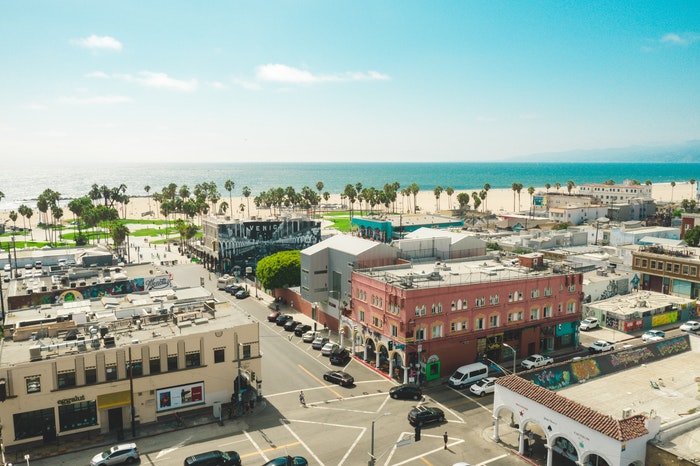 In a previous blog post we examined the performance of the commercial real estate market in some major US cities. This is the second article in this series, which uses data from late 2020 and early 2021 to examine vacancy and supply rates in cities such as Los Angeles, Chicago, Atlanta and Houston. These statistics illustrate the impact of COVID-19 on the commercial property rental market, as well as the types of properties that are holding strong in the face of negative trends.
In a previous blog post we examined the performance of the commercial real estate market in some major US cities. This is the second article in this series, which uses data from late 2020 and early 2021 to examine vacancy and supply rates in cities such as Los Angeles, Chicago, Atlanta and Houston. These statistics illustrate the impact of COVID-19 on the commercial property rental market, as well as the types of properties that are holding strong in the face of negative trends.
Los Angeles
Los Angeles is a hub for creative, media, and entertainment companies, many of which are office-based. The city’s proximity to major cargo ports makes it convenient for logistics and distribution businesses, both of which have kept the industrial real estate market strong.
Offices
- Vacancy rates in downtown Los Angeles are 21.5%.
- In Q4 20202, there was more than 5.5 million square feet for vacant space, with 3.4 million feet being in the Financial District.
- The majority of vacant inventory involves Class A offices.
- Supply increased by more than 2 million square feet in the past 12 months.
- No new supply is expected to enter the market as no projects are currently under construction in the CBD area.
- Vacancy rates average 22.5% outside of the CBD, however, they reach 56% in the Fashion District.
- Vacancy rates are just under 18% in the Greater Los Angeles area.
Read the rest of this entry »
Tags: 2021, Atlanta, Brooklyn, chicago, Houston, Los Angeles, Seattle, vacancy and supply
Posted in Atlanta, Best Cities for Business in the USA, Brooklyn, Chicago, Houston, Los Angeles, Office Space Forecasts and Trends, Seattle, Trends and Statistics | No Comments »
Add to: Del.icio.us | Digg
February 11th, 2021

With a market size of nearly $900bn, the United States has one of the world’s largest commercial real estate markets, coupled with some of the most desirable business locations to match. This post serves as the first part of our examination into the US market’s performance based on data from Q4 2020 and Q1 2021.
Read the rest of this entry »
Tags: 2021, Boston, Dallas, dc, new york, philadelphia, San Francisco, vacancy and supply, Washington
Posted in Best Cities for Business in the USA, Boston, Dallas, DC, Manhattan, New York, Office Space Forecasts and Trends, Philadelphia, San Francisco, Trends and Statistics, Washington | No Comments »
Add to: Del.icio.us | Digg
January 27th, 2021
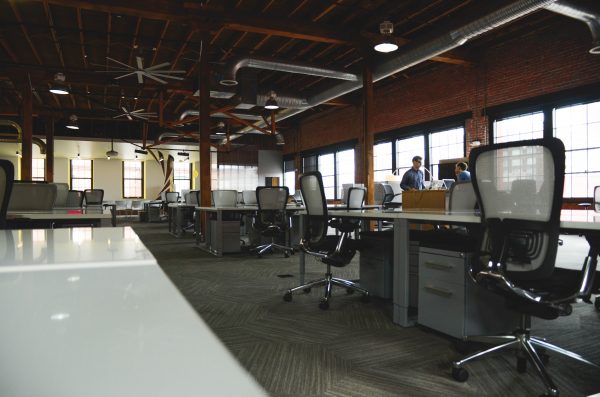 Commercial real estate was one of the hardest hit sectors following the coronavirus outbreak in 2020. The pandemic and the measures taken to curb its spread brought significant changes to office-based workplaces, driving a sharp and sudden increase in remote work practices. The most immediate consequence of this shift was a softening in rental activity due to the decreased need for physical office space in the short-term. As a result, 2020 ended with a marked decline in take-up volume and an increase in office vacancy rates across the nation.
Commercial real estate was one of the hardest hit sectors following the coronavirus outbreak in 2020. The pandemic and the measures taken to curb its spread brought significant changes to office-based workplaces, driving a sharp and sudden increase in remote work practices. The most immediate consequence of this shift was a softening in rental activity due to the decreased need for physical office space in the short-term. As a result, 2020 ended with a marked decline in take-up volume and an increase in office vacancy rates across the nation.
The United States office rental market entered the new year in a scenario marked by declining rental rates and compromised fundamentals. As we move further into 2021, these trends are likely to remain in place and some markets may begin to feel the full impact of the economic crisis, whereas others will prove more resilient.
Read the rest of this entry »
Tags: commercial property, Commercial Real Estate, Office Market Trends, Office Space Trends and Forecasts
Posted in Office Space Forecasts and Trends, Office Talk, Real Estate, Trends and Statistics | No Comments »
Add to: Del.icio.us | Digg
December 22nd, 2020
 The United States office market is characterized by its wide range of properties, ranging from affordable shared spaces to expensive trophy offices in some of the world’s most desirable business locations. In mid-2020, average gross rates for offices nationwide stood at $35 per square foot with the priciest offices located in New York and California. Within these states, the sub-markets commanding the highest rates are:
The United States office market is characterized by its wide range of properties, ranging from affordable shared spaces to expensive trophy offices in some of the world’s most desirable business locations. In mid-2020, average gross rates for offices nationwide stood at $35 per square foot with the priciest offices located in New York and California. Within these states, the sub-markets commanding the highest rates are:
- New York: Midtown Manhattan at $87 per square foot, specifically in Chelsea, the Plaza District, and Gramercy Park.
- California: The Shoreline/Mountain View area, in which prices reach $130 per square foot, followed by Santa Monica and the SoMa district of San Francisco.
Average asking rates in other prime office markets are as follows:
- Seattle: $70 per square foot, higher in Lake Union and the CBD.
- Washington DC: $55 per square foot.
- Cambridge and Boston: $40 and $80 per square foot, respectively.
- Los Angeles: Averaging $45 per square foot.
- Chicago: Exceeding $40 per square foot in the West Loop.
- Raleigh-Durham: $35 per square foot for CBD properties.
Read the rest of this entry »
Tags: California, chicago, new york, Office Rental, Office Space, prices, Rental Rates, Seattle, Washington
Posted in Office Space Forecasts and Trends, Office Talk, Trends and Statistics | No Comments »
Add to: Del.icio.us | Digg
December 15th, 2020
 An updated version of this post can be found by clicking here.
An updated version of this post can be found by clicking here.
The United States is home to one of the world’s largest commercial real estate markets, with an estimated worth of approximately $950bn. In terms of size, industrial space is the largest sub-market with 21bn square feet, followed by retail with 13bn, and offices, which account for 11bn.
In Q2 2020, the average price per square foot for US offices was just over $35. Retail averaged out to $18.09 / square foot, and industrial space came in at just under $8 / square foot. However, there are significant variations in average prices based on location and real estate class. Here is a summary of average commercial rates in key USA cities:
- New York: Average gross rates for metro New York offices are $81 / sq ft / year. Industrial space averages $19 / sq ft / year.
- Los Angeles: $44 / sq ft / year for offices in the metropolitan area and $11 / sq ft / year for industrial premises.
- Miami: In the same range as Los Angeles for CBD offices and slightly lower for industrial space ($8 / sq ft / year).
- Boston: $39/ sq ft / year for metro offices, rising to $80 in Cambridge. Industrial properties average $10 / sq ft / year.
- Philadelphia: $36 / sq ft / year for city center offices, $27 for suburban space, and $6 / sq ft / year for industrial properties.
- Atlanta: Slightly under $30 / sq ft / year for offices with a rate of $35 in Downtown Atlanta. Industrial space is charged at an average of $5 / sq ft / year.
- Chicago: Approximately $33 / sq ft / year for office space, rising to averages above $40 in The Loop. Industrial premises average $6 / sq ft / year.
- Dallas and other urban centers in Texas: between $25 and $30 / sq ft / year, whereas industrial rates are below $5.
Read the rest of this entry »
Tags: Business Advice, commercial property, Commercial Real Estate, Office Market Trends, Office Rental, Office Space Trends and Forecasts, Office Talk, prices
Posted in Office Space Forecasts and Trends, Real Estate, Trends and Statistics | No Comments »
Add to: Del.icio.us | Digg
June 25th, 2019
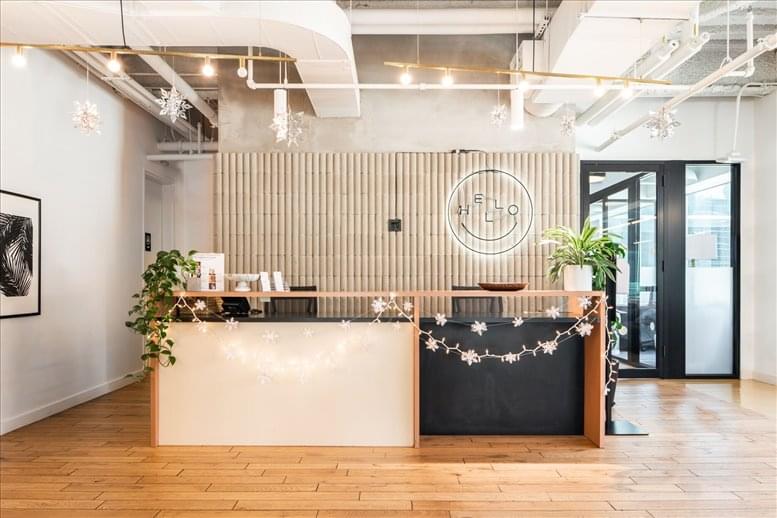 New York City is home to more than 500 million square feet of office space, which make it one of the world’s largest office markets. While that seems a large amount, space shortages are a reality, and not only in terms of the offices available. Rising rental values mean that many New York companies are choosing to downsize or to make changes to their office layout to maximize space and cut costs. Nowadays, it is not uncommon for companies to move to office premises that are up to 25 percent smaller, yet the amount of people sharing that space remains the same.
New York City is home to more than 500 million square feet of office space, which make it one of the world’s largest office markets. While that seems a large amount, space shortages are a reality, and not only in terms of the offices available. Rising rental values mean that many New York companies are choosing to downsize or to make changes to their office layout to maximize space and cut costs. Nowadays, it is not uncommon for companies to move to office premises that are up to 25 percent smaller, yet the amount of people sharing that space remains the same.
Another way in which the amount of office space allocated to each staff member is getting scarcer is because of current trends towards open plan offices and collaborative spaces. The concept of the sharing economy has extended into office design and space allocation, with shared workspaces becoming increasingly more common, which means individual desks are being replaced by large long tables. In fact, New York leads the nation’s provision of shared office space, and even in traditional offices there have been changes in the desk space – meeting or collaborative space ratio, with the balance switching towards the latter.
Read the rest of this entry »
Tags: new york, Office Space, Office Space Trends and Forecasts
Posted in New York, Trends and Statistics | No Comments »
Add to: Del.icio.us | Digg
February 24th, 2016
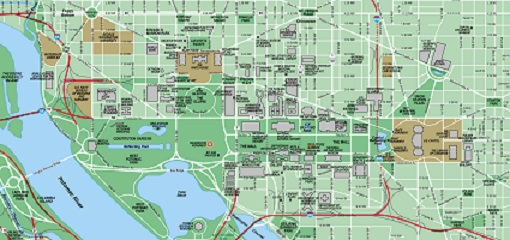 Bolstered by a robust economic performance, the office market in Washington DC delivered a fine performance throughout 2015. Unemployment levels in the DC metropolitan area were at their lowest since 2008, reaching figures well below the US national average (4.3 per cent vs 5 per cent). These conditions have helped shape a real estate market that is predominantly favourable to landlords, as the following trends demonstrate:
Bolstered by a robust economic performance, the office market in Washington DC delivered a fine performance throughout 2015. Unemployment levels in the DC metropolitan area were at their lowest since 2008, reaching figures well below the US national average (4.3 per cent vs 5 per cent). These conditions have helped shape a real estate market that is predominantly favourable to landlords, as the following trends demonstrate:
Rental values continued their slow recovery throughout 2015 and are currently set around the $50 / square foot mark.
Availability rates for all types of office space went down to 16.3 per cent. Towards the end of 2015, approximately 13.2 million square feet of office space were vacant.
The most significant transactions involved lease renewals or re-lets, although there have been several large sale transactions taking place in the city’s East End too.
Annual absorption levels were high at 887,000 square feet, and construction activity increased by 22 per cent on a year-on-year basis.
However, here has modest decrease in vacancy rates, especially as far as Class A space is concerned. Vacancy rates for these types of office properties still remain relatively high at 11.5 per cent. Vacancy levels for Class B and Class C space in Washington were slightly lower at 10 per cent.
Washington DC Office Market: 2015 Key Facts & Figures
During 2015, vacancy rates for all types of office space in Washington went down to 10.5 per cent, pretty much in line with the city’s historical average of 10.7 per cent. At the same time, net absorption levels increased by a staggering 185 per cent, going from 198,000 square feet in 2014 to 398,000 by December 2015. Nearly half of the transactions involved office stock in Washington’s CBD, which clearly outperformed all other sub-markets. This is attributed to the ongoing influx of new tenants relocating from secondary office locations into the CBD. This trend began to be evident in 2014 and has been solidified over the past 12 months. Read the rest of this entry »
Tags: 2016, dc, Office Market Statistics, Office Space Trends and Forecasts, USA, Washington
Posted in DC, Office Space Forecasts and Trends, Trends and Statistics, Washington | No Comments »
Add to: Del.icio.us | Digg
February 17th, 2016
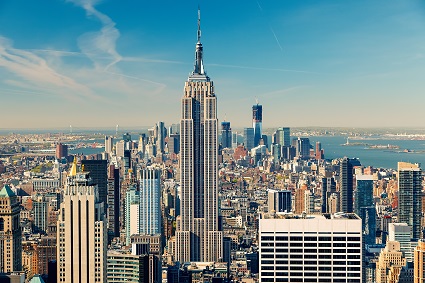 An in depth look at how the Manhattan office space market has fared in 2015 and forecasts for this coming year.
An in depth look at how the Manhattan office space market has fared in 2015 and forecasts for this coming year.
Manhattan Office Market Overview of 2015
Over the past 12 months, federal economic policy has been focusing on expansion, driving an increase in employment rates, especially as far as office-based employment is concerned. This type of employment grew by 2.6 per cent in just 1 year, and prompted a considerable increase in demand led by occupiers in the Manhattan financial services sector. In certain Manhattan sub-markets (such as in Midtown South), strong demand from tenants in the TAMI sector (technology, advertising, media, and information) was also evident.
At the end of 2015, total office stock in Manhattan was just under 395 million square feet, of which 28 million were vacant. Total transaction volume amounted to more than 28 million square feet, one of the highest figures of the past 10 years. However, there was a slight decline in transaction volumes in downtown Manhattan, where transactions mostly involved small and medium-sized office properties.
Manhattan Office Market: Key Facts & Figures
During 2015, office vacancy rates in Manhattan went down from 9.3 per cent to 8.5 per cent. This decrease equals to 90 basis points on a year-on-year basis, and brings vacancy rates closer to Manhattan’s historical average of 8.9 per cent. In Midtown South, vacancy rates were markedly lower at 6.2 per cent, whereas in downtown Manhattan they went down by 30 basis points to 9.4 per cent. Read the rest of this entry »
Tags: 2016, CRE, Manhattan, new york, Office Market Trends, Office Space
Posted in Manhattan, New York, Trends and Statistics | No Comments »
Add to: Del.icio.us | Digg

 In September 2021,
In September 2021,  In a previous blog post we examined the performance of the commercial real estate market in some major US cities. This is the second article in this series, which uses data from late 2020 and early 2021 to examine vacancy and supply rates in cities such as Los Angeles, Chicago, Atlanta and Houston. These statistics illustrate the impact of COVID-19 on the commercial property rental market, as well as the types of properties that are holding strong in the face of negative trends.
In a previous blog post we examined the performance of the commercial real estate market in some major US cities. This is the second article in this series, which uses data from late 2020 and early 2021 to examine vacancy and supply rates in cities such as Los Angeles, Chicago, Atlanta and Houston. These statistics illustrate the impact of COVID-19 on the commercial property rental market, as well as the types of properties that are holding strong in the face of negative trends.
 Commercial real estate was one of the hardest hit sectors following the coronavirus outbreak in 2020. The pandemic and the measures taken to curb its spread brought significant changes to office-based workplaces, driving a sharp and sudden increase in remote work practices. The most immediate consequence of this shift was a softening in rental activity due to the decreased need for physical office space in the short-term. As a result, 2020 ended with a marked decline in take-up volume and an increase in office vacancy rates across the nation.
Commercial real estate was one of the hardest hit sectors following the coronavirus outbreak in 2020. The pandemic and the measures taken to curb its spread brought significant changes to office-based workplaces, driving a sharp and sudden increase in remote work practices. The most immediate consequence of this shift was a softening in rental activity due to the decreased need for physical office space in the short-term. As a result, 2020 ended with a marked decline in take-up volume and an increase in office vacancy rates across the nation. The United States office market is characterized by its wide range of properties, ranging from affordable shared spaces to expensive trophy offices in some of the world’s most desirable business locations. In mid-2020, average gross rates for offices nationwide stood at $35 per square foot with the
The United States office market is characterized by its wide range of properties, ranging from affordable shared spaces to expensive trophy offices in some of the world’s most desirable business locations. In mid-2020, average gross rates for offices nationwide stood at $35 per square foot with the  An updated version of this post can be found by
An updated version of this post can be found by  New York City is home to more than 500 million square feet of
New York City is home to more than 500 million square feet of  Bolstered by a robust economic performance, the office market in Washington DC delivered a fine performance throughout 2015. Unemployment levels in the DC metropolitan area were at their lowest since 2008, reaching figures well below the US national average (4.3 per cent vs 5 per cent). These conditions have helped shape a real estate market that is predominantly favourable to landlords, as the following trends demonstrate:
Bolstered by a robust economic performance, the office market in Washington DC delivered a fine performance throughout 2015. Unemployment levels in the DC metropolitan area were at their lowest since 2008, reaching figures well below the US national average (4.3 per cent vs 5 per cent). These conditions have helped shape a real estate market that is predominantly favourable to landlords, as the following trends demonstrate: An in depth look at how the Manhattan office space market has fared in 2015 and forecasts for this coming year.
An in depth look at how the Manhattan office space market has fared in 2015 and forecasts for this coming year.